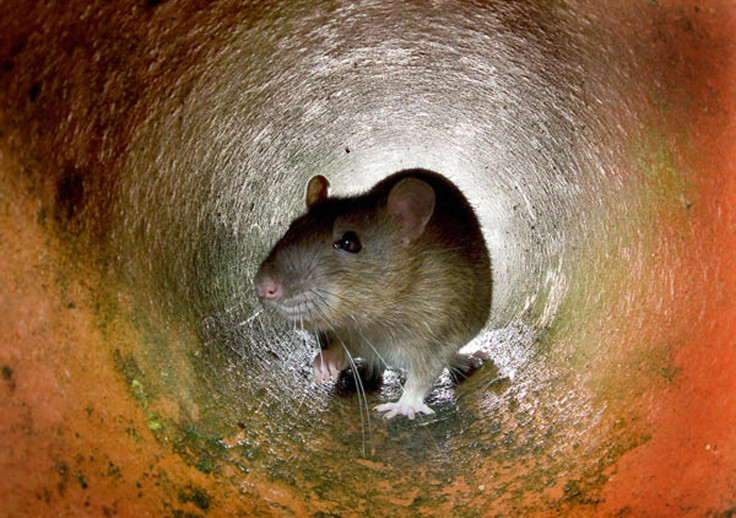Dreaming Rats Plan Their Future While Asleep

Humans, it turns out, are not the only mammals to have grandiose dreams about their future. New research has found that rats -- if shown a tasty treat placed in a location they can’t reach -- dream of walking toward it when they are asleep.
“It's like looking at a holiday brochure for Greece the day before you go -- that night you might dream about the pictures,” Hugo Spiers, a neuroscientist at the University College London (UCL) and co-author of the study, published in the journal eLife, reportedly said.
In this particular study, the rats were individually placed on a track with a T-junction ahead. One of the arms had food at the end, while the other side was empty. However, access to the junction and the arms beyond it was prevented using a transparent barrier. So, the rats could see the food and the route to it, but they couldn’t get to it.
After they had observed the food, the rodents were put in a sleep chamber for an hour. Finally, after the barrier was removed, the animals were returned to the track and allowed to run across the junction and on to the arms.
“During exploration, mammals rapidly form a map of the environment in their hippocampus,” Spiers said, in a statement released Friday, referring to the region in the brain that is the center of emotion and memory. “During sleep or rest, the hippocampus replays journeys through this map which may help strengthen the memory.”
Certain neurons in the hippocampus, known as “place cells,” help store memories about location and form mental maps.
Surprisingly, measurements made using tiny electrodes showed that even when the rats were asleep, the place cells -- that would later provide an internal map of the food arm -- remained active, while the cells representing the empty arm were not activated. And, when the rats were put back into the maze, the cells fired in the same pattern as they had during sleep.
“Our new results show that during rest the hippocampus also constructs fragments of a future yet to happen. Because the rat and human hippocampus are similar, this may explain why patients with damage to their hippocampus struggle to imagine future events,” Spiers said. Additionally, the experiment also proves that imagining the future is not a uniquely human ability.
However, it is not yet clear whether mapping future routes during sleep actually helps the rats navigate the maze later.
“It seems possible this process is a way of evaluating the available options to determine which is the most likely to end in reward, thinking it through if you like,” lead author Caswell Barry from UCL said, in the statement. “We don't know that for sure though and something we'd like to do in the future is try to establish a link between this apparent planning and what the animals do next.”
© Copyright IBTimes 2024. All rights reserved.






















